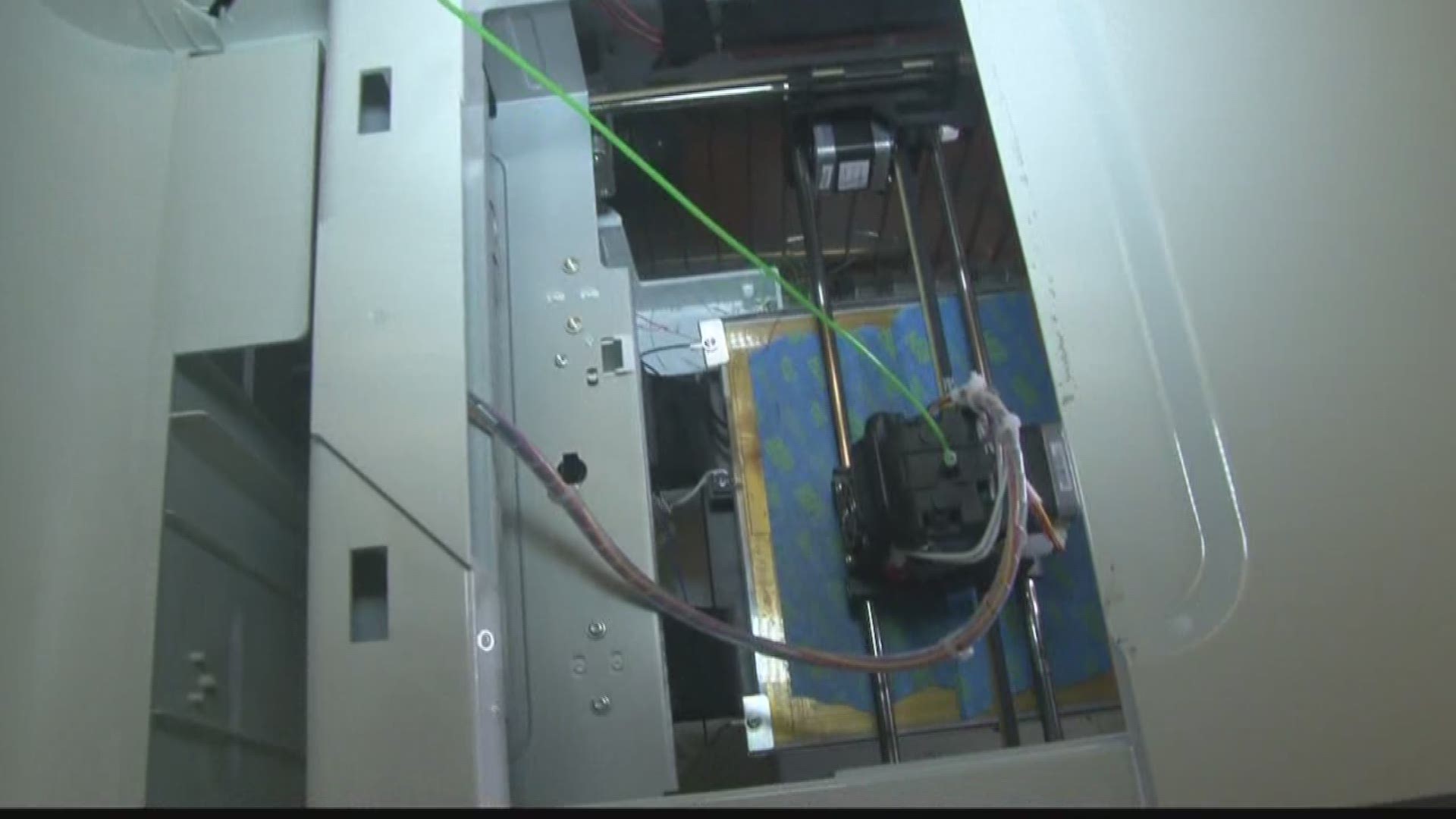If you have a child in grade school, you probably have heard of the fidget spinner. In fact, even if you don't have a child, you might have one yourself.
It is the hand-held toy that is supposed to help you concentrate and relieve stress. But it seems to have become something more.
"I guess I'll put it in the context of a pet rock for some of us who are old enough to know what a pet rock is," Jim Dillon of Batavia said. "Everybody has one so I gotta have one."
Not only is there the desirability, but there's competition, too. The challenge is to see how long you can balance and spin the toy on your finger.
It comes as no surprise that as this spinner craze keeps spinning, supplies keep dwindling.
Dillon came up with a solution to make more spinners and slip in a little learning, too.
"People wanted them," Dillon explained. "People couldn't find them in town. So rather than just make a bunch and sell them, I said 'well, why don't your kids come in and actually see how it's done.'"
Dillon runs "Harvester Makerspace" which is a place intended to welcome kids to come with any design concept and bring those designs to life.
A lot of the creating capability in the shop comes from 3D printers. And that's how Dillon is helping kids make their own fidget spinners, too.
"Everybody's got their composition book," Dillon said. "Don't go to your grave with it with never exposing those ideas."
In the past, Dillon has made things such as prosthetic hands. Seeing the market demand, he is now focusing his efforts on spinners.
Kids can come in, see how the fidget spinner is created in a computer software, pick a filament color, send the design to the printer and then watch, for about 10 minutes, as it prints.
"Understanding what's going on and being able to manipulate the G-code, which is the machine code that runs the machine is handy because these, though they're rather thin, take a little delicate planning when you print them," Dillon said.
If you print them too hot, the plastic spreads out too much. If you print them too cold, the toy will not stick correctly to the printer bed.
These are lessons in automation and engineering, something Dillon said he is qualified to teach since his day job is a mechanical engineer.
If you would like to get your kids, or yourself, in to make a fidget spinner, you can message Harvester Makerspace to make an appointment. It is $5 per spinner.

